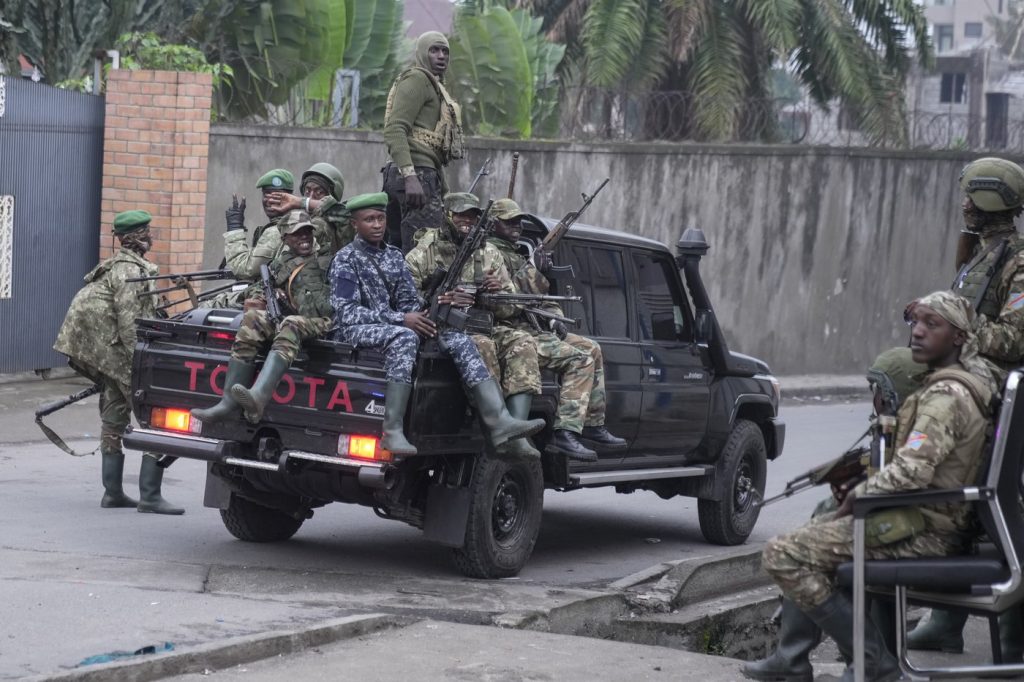In Goma, Congo, President Félix Tshisekedi has urged the youth to enlist in the military to combat Rwanda-backed M23 rebels, who are advancing to seize more territory in the eastern region of the country. This call comes amid a crucial meeting of neighboring states that suggested the Congolese government engage in dialogue with the rebels. Rwandan President Paul Kagame has also issued threats regarding potential conflicts with South Africa surrounding the matter.
Following the M23 rebels' incursion into Goma, eastern Congo's largest city, Tshisekedi emphasized a “vigorous and coordinated response” to the aggression, while reiterating a commitment to a peaceful resolution. “Enlist massively in the army because you are the spearhead of our country,” he implored the younger population of Congo.
The M23 rebels, reportedly supported by approximately 4,000 troops from Rwanda—significantly more than the limited support seen during their initial takeover of Goma in 2012—represent one of the many armed groups vying for control in Congo's resource-rich eastern territory, which holds mineral deposits estimated to be worth around $24 trillion and vital for global technology industries.
A summit of the East African regional bloc has called for an immediate and unconditional ceasefire while urging the Congolese government to initiate talks with the M23 rebels. Notably, Tshisekedi did not participate in the virtual summit that included Rwanda as a member state.
Witnesses report that after capturing significant portions of Goma—critically located for over 6 million displaced persons—the rebels continued their advance into South Kivu province by Thursday morning. The Congolese military's capability has been severely compromised following the withdrawal of hundreds of foreign military contractors who surrendered their arms to the insurgents.
As the M23 rebels captured several towns in South Kivu, they appeared to be moving towards the center of the province. In a related incident, at least 13 South African peacekeepers have been killed, prompting South African President Cyril Ramaphosa to place blame on the "Rwanda Defense Force militia" for the violence. This statement elicited a strong rebuttal from Kagame, who threatened to “deal” with any confrontational actions from South Africa.
Kagame characterized the South African peacekeepers as a “belligerent force” collaborating with armed groups that target Rwanda itself and noted, “If South Africa prefers confrontation, Rwanda will deal with the matter in that context any day.”
Experts have pointed out that the ongoing conflict in eastern Congo fundamentally revolves around controlling the region's immense mineral wealth. The M23 rebels appear poised to expand their influence permanently in eastern Congo, expressing intentions to establish a governing administration and facilitate the return of displaced individuals to their homes.
The tumultuous situation involving the M23 rebels is deeply intertwined with ethnic conflicts dating back to the 1994 Rwandan genocide, during which about 800,000 Tutsis and others were killed by Hutu militias. The M23 movement claims to be defending the Tutsi population within Congo, while Rwanda alleges that the Tutsis are facing persecution from Hutus and other parties involved in the genocide. Following the 1994 events, numerous Hutus sought refuge in Congo.
Analysts warn that the risk of a broader regional conflict looms large, noting that securing a withdrawal of rebel forces will likely prove more complex than in 2012, when the M23 first seized Goma. The group's confidence is bolstered by Rwanda, which perceives that Congo has been neglecting its regional interests and disregarding prior peace agreements. Murithi Mutiga, a program director at the Crisis Group, attributed this predicament to failures in African mediation, highlighting persistent signs of aggression from both Kigali and the Congolese government.










